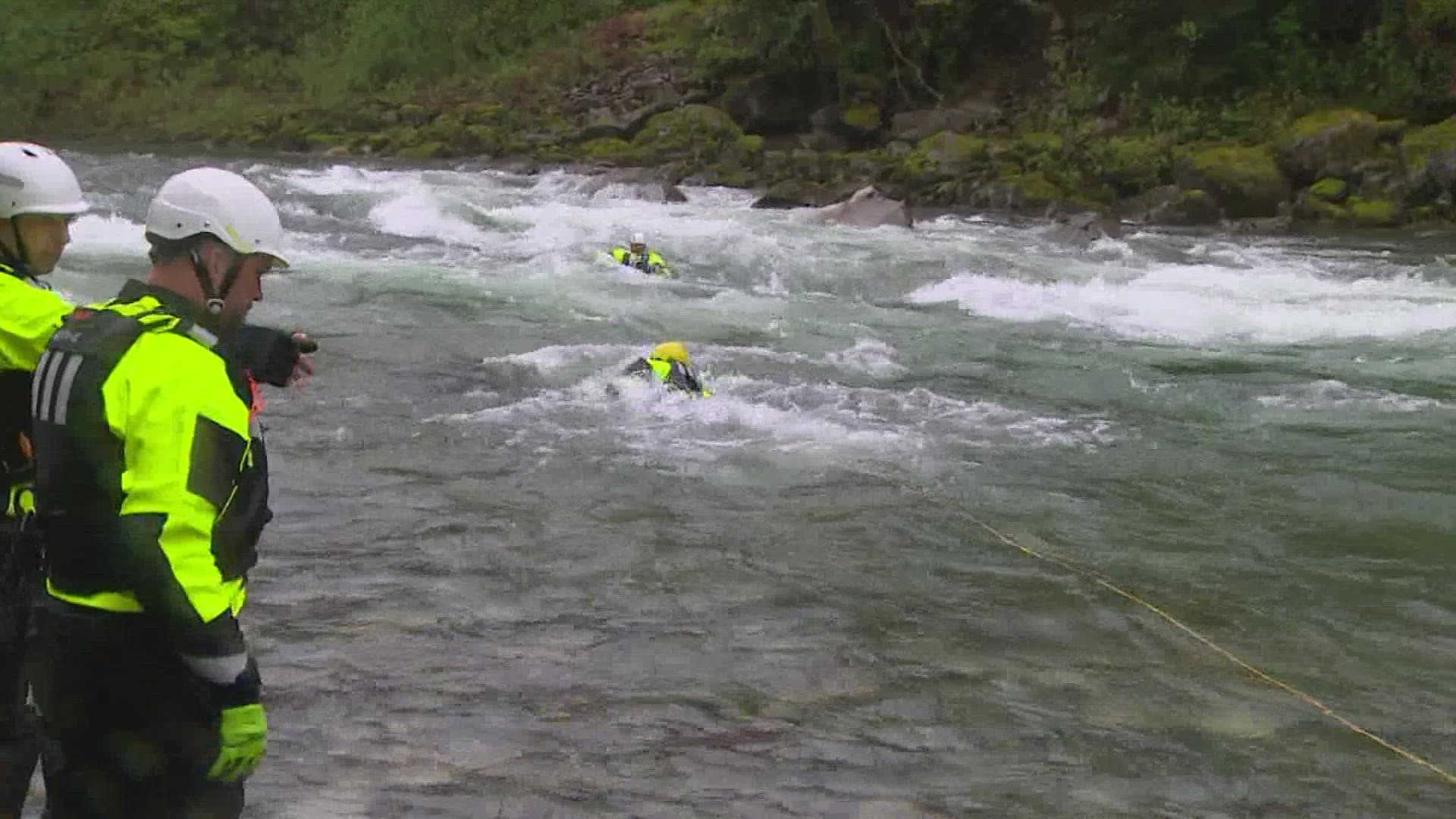ARLINGTON, Wash. — On a cold, rainy Thursday, a team of 38 Snohomish County water rescue workers from five departments intentionally sought out the roughest waters they could find on the Skykomish River and jumped in to learn how to save lives.
"We always think of the worst-case scenario whenever we plan," said Lt. Jamal Beckham of Snohomish Regional Fire & Rescue.
Rescue workers honed their own survival skills – like how to navigate their bodies in whitewater. They also practiced how to save a person who has fallen in the river and can't get out.
One of the training exercises included rescue workers, clad in dry suits, swimming into the quick-moving current and grabbing a cohort as he was being washed downstream. Once the cohort was secured by the rescue worker, members onshore pulled both of them to safety.
"We never know what's gonna happen," said firefighter Pe Parrish. "We provide help during emergencies and it can happen at any time."
Last year "any time" seemed to happen all the time. It was one of the busiest seasons on record for rescue crews all across western Washington.
At the wildly popular Eagle Falls on the Skykomish River, there were at least three deaths, and authorities are worried this summer could be even busier with the pandemic mostly behind us.
The Snohomish County crew is well prepared, but the training is something they hope they never have to use.
"We all love what we do and we're happy to be out there doing it," said Parrish, "but if we have to effect a rescue, somebody else is having a very bad day."
It's a dangerous dance in unforgiving waters, but one that is critical in making sure everyone enjoying the majesty of the Northwest can return to do it again.
"It breaks our hearts when we have to go out and recover someone," said Beckham.
Firefighters once again repeated their annual mantra of wearing lifejackets when swimming in rivers and lakes.
"Very rarely do we pull someone out of the water who was wearing a lifejacket," said Beckham.

